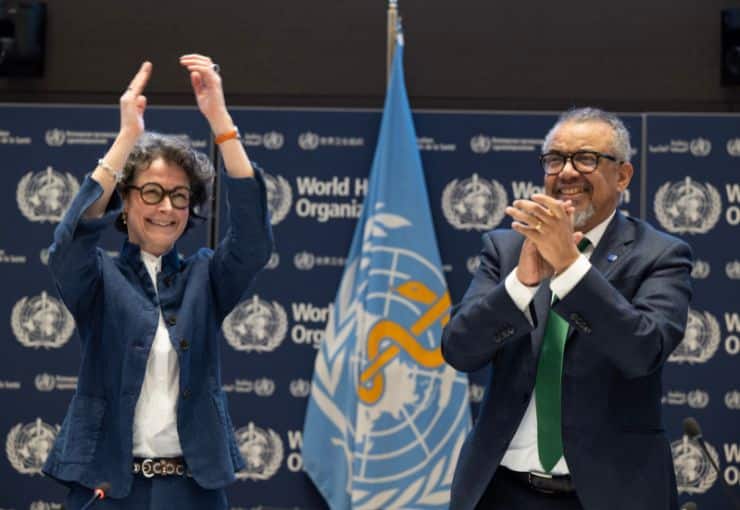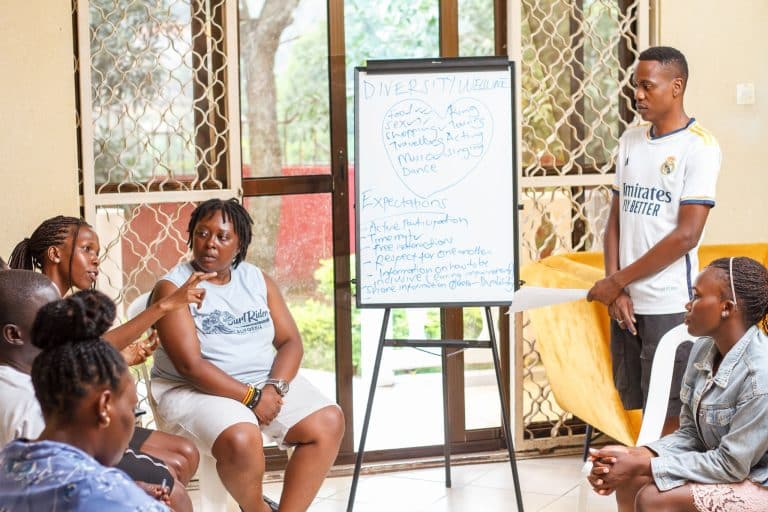Pharmaceutical company Lupin Europe is aiming to bring an existing medicine for a rare muscle disease on the market under a new name and at a much higher price. The Dutch public television programme ‘Kassa’, with more than one million viewers, reported this on November 2nd, showing how this pharmaceutical company uses public research to increase its profit margins. “This is unjustifiable and even condemnable,” says Wemos’ global health advocate Ella Weggen in the programme.
The case concerns Mexiletine, a medicine developed 40 years ago as a treatment against cardiac disorders, that also proved to work against the rare muscle disease non-dystrophic myotonia. In the Netherlands, it has been reimbursable for this application since 2014. Last year, however, its manufacturer – the pharmaceutical company Lupin – registered the drug with an orphan designation in the European Union and brought it to the market under a new name: NaMuscla. Lupin now holds the exclusive rights for the medicine and, with that, can determine its price.
“We are being held hostage by the pharmaceutical company”
Kassa conducted an interview with our Global Health Advocate Ella Weggen when investigating the topic. Ella explains: “The price for Mexiletine when used as a medicine for cardiac disorders was about 4,000 euros per patient per year. Because this pharmaceutical company has now designated the medicine the status of ‘orphan drug’*, it has been granted market exclusivity for ten years, and therefore the freedom to determine the price. It has already been marketed in the United Kingdom for 80,000 euros per patient per year. This is irresponsible and even condemnable. The medicine has not changed, and the pharmaceutical company has hardly done any research into it itself. They even used research from universities to get the orphan designation.”
The price indication for the ‘new’ drug on the Dutch market is 20 times higher than the current price.
Kassa also spoke with Bas Stunnenberg, neurologist at the Radboudumc. “It is unacceptable that it might no longer be reimbursed due to the exorbitant price hike, while it is exactly the same medicine as before. We are being held hostage by the pharmaceutical company and I find that unacceptable”, he points out to Kassa.
Minister Bruins commented on the case as well, stating how he “we should do something about it. I request openness to any manufacturer in the Netherlands who sits at my table. (…) I want the pharmaceutical industry to be open about the pricing structure and about the prices they ask for medicines. That way we aim to keep medicines available at a reasonable price, for patients now and in the future”.
Manufacturer Lupin stated that it is still unclear what the drug will cost in the Netherlands and refrained from giving any further comments.
Pharmaceutical Compounding
Paul Lebbink, a pharmacist from The Hague, has managed to prepare Mexiletine himself in his pharmacy. Health insurer CZ had asked him to investigate that. Three patients are now receiving the medicine through him. New conversations will follow to see if Lebbink can boost the production of the medicine. According to current Dutch rules, he may serve a maximum of fifty unique patients per month. Through this “magisterial preparation” the drug costs around five thousand euros per year. This type of preparation is reimbursed from the basic insurance from 1 January onwards. But the pharmaceutical company will undoubtedly legally challenge this. (Source: Nijmeegse Onderzoekers bewijzen nieuwe toepassing oud medicijn dus verzestienvoudigt farmaceut de vraagprijs (Volkskrant))
* An orphan drug is a pharmaceutical agent that has been developed specifically to treat a rare medical condition, the condition itself being referred to as an orphan disease. The prevalence of the condition in the EU must not be more than 5 in 10,000.
For more information or questions about the broadcast, please get in touch with Ella Weggen via: ella.weggen@wemos.nl or +31 (0)20 236 47 36.




